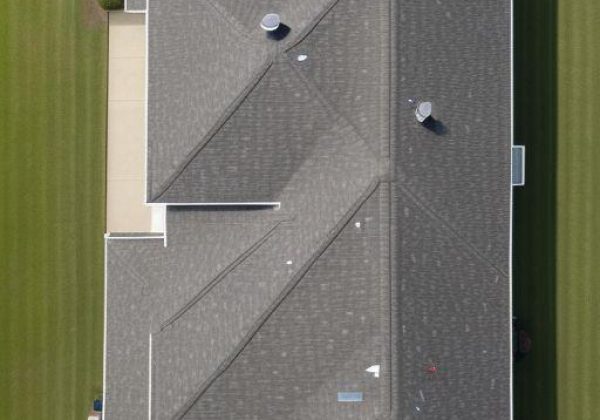Understanding the Roles: Contractor vs. Roofer – What’s the Difference?
In the construction and renovation industry, the terms "contractor" and "roofer" are often used interchangeably, leading to confusion among homeowners and property managers alike. While both play essential roles in building and repairing structures, their responsibilities, expertise, and scope of work differ significantly. This article delves into the nuances of each profession to help you understand the vital distinctions between a contractor and a roofer.
What is a Contractor?
A contractor is an individual or company hired to oversee construction projects, manage workers, and ensure that the project runs smoothly from start to finish. Contractors can specialize in various fields, including general contracting, electrical work, plumbing, and roofing. They act as project managers who coordinate all aspects of a construction or renovation job.
Types of Contractors
General Contractors: These professionals handle a broad range of construction tasks, coordinating multiple trades depending on project requirements.
Specialty Contractors: These include electricians, plumbers, roofers, and other specialists who focus on specific areas of construction.
Subcontractors: Often hired by general contractors to perform specialized tasks within a larger project.

Key Responsibilities of a Contractor
-
Project Management: Ensuring that the project stays on schedule and within budget.
-
Hiring Subcontractors: Engaging skilled professionals for specialized tasks.
-
Permitting: Securing necessary permits for construction activities.
-
Compliance: Making sure that all work adheres to local building codes and regulations.
What is a Roofer?
A roofer specializes in roof installation, repair, maintenance, and replacement. This trade requires specific skills related to working at heights and understanding roofing https://scr247.com/lavon-roofing-contractor/ materials and techniques.
Types of Roofing Services Offered by Roofers
Installation: New roof installations for residential or commercial properties.

Repair: Fixing leaks or damaged roofs caused by weather conditions or wear over time.
Maintenance: Regular inspections and maintenance services to prolong roof lifespan.
Replacement: Full roof replacements when repairs are no longer feasible.
Key Responsibilities of a Roofer
-
Material Selection: Choosing appropriate materials based on climate conditions and building design.
-
Roof Assessment: Conducting thorough inspections to identify potential issues.

-
Safety Practices: Implementing safety protocols while working at heights.
Understanding the Roles: Contractor vs. Roofer – What’s the Difference?
The most significant difference between contractors and roofers lies in their scope of work:
-
A contractor oversees entire projects that may involve various elements like plumbing, electrical work, landscaping, etc., while a roofer focuses solely on roofing-related tasks.
-
Contractors typically hire specialized subcontractors (like roofers) to complete specific parts of their projects.
This distinction can be crucial when seeking help with your home improvement needs; knowing whether you need a general contractor or a specialized roofer can save you time and money.
Why Is It Important to Distinguish Between Contractors and Roofers?
Understanding the differences can help you make informed decisions regarding your home renovation projects:
Expertise Matching: Hiring the right professional ensures you receive quality workmanship tailored to your needs.
Budget Control: Knowing what each role entails helps you allocate your budget effectively without overspending on unnecessary services.
Time Efficiency: Engaging specialists saves time compared to relying on someone whose expertise may not align with your project's specific needs.
How Do You Find a Roofing Contractor Near Me?
Searching for a "roofing contractor near me" can yield numerous results online; however, it’s essential to narrow down your options carefully:
Use Online Directories: Websites like Yelp or Angie's List can provide reviews from previous customers.
Local Recommendations: Asking friends or family members for referrals can lead you to trusted professionals in your area.
Verify Credentials: Always check their licenses, insurance coverage, and any certifications relevant to roofing standards in your locality.
Request Estimates: Contact several contractors for quotes before making your choice—this will give you an idea about pricing trends in your area.
Read Reviews & Testimonials: Check online reviews for insights into others' experiences with particular contractors or roofers.
FAQs
1. What qualifications should I look for in a roofer?
When searching for a reputable roofer, look for licenses specific to roofing work, insurance coverage (liability insurance), certifications from material manufacturers (like GAF or CertainTeed), years of experience in roofing jobs similar to yours, customer reviews/testimonials showcasing prior successful projects.
2. Can I hire a general contractor instead of a roofer?
While some general contractors may have roofing experience themselves or employ subcontractors who do so well; hiring specifically trained roofers is often recommended due their focused skillset which directly impacts overall quality & longevity.
3. How much does it cost to hire a roofing contractor?
Cost varies based on factors such as location (urban areas tend higher), type/quality materials chosen (asphalt shingles vs metal roofs), complexity size slope involved—average prices range anywhere from $3000-$15000 depending upon these variables.
4.Do I need permits before getting my roof replaced?
Yes! Most cities require permits prior replacing roofs because they ensure compliance with building codes regulations designed protect safety integrity structures.
5.What’s the lifespan expectancy typical roofs?
Depending upon material types asphalt shingle lasts around 20 years; metal roofs average around 40+ years while tile/concrete could last upwards towards half-century!
6.Is it possible do DIY roofing repairs?
Although minor patchwork might seem manageable; full installations replacements best left professionals due safety risks involved unless possessing proper tools knowledge experience required accomplish task accordingly.
Conclusion
Understanding the roles between contractors versus roofers is fundamental for anyone looking into home renovations or repairs—especially regarding critical components like roofs! By pinpointing who does what within these professions will save time frustration throughout process ensuring optimal outcome achieved every step way!
In summary:
- A contractor manages broader scopes involving multiple trades while specializing in comprehensive project management skills.
- Roofers specialize specifically focusing solely rooftops providing their expert knowledge material selection installations repairs maintenance needs perspective!
To avoid confusion next time someone mentions either term remember this breakdown clarity benefits gained through distinguishing them effectively! Make sure find reliable “roofing contractor near me” when embarking upon exciting journey improving property value comfort ultimately enhancing living spaces long-term satisfaction!